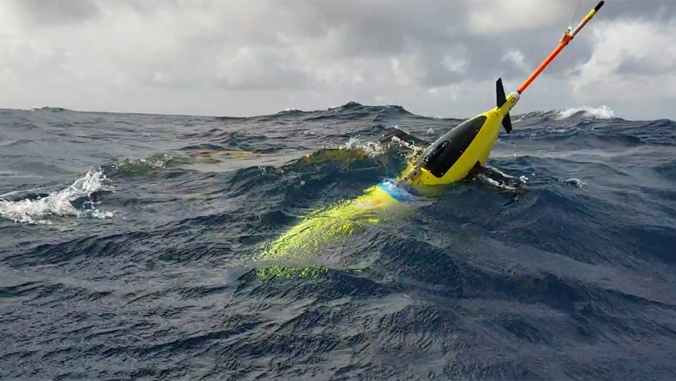
Autonomous mobile robot research at the University of Hawaiʻi at Mānoa College of Engineering recently received a major boost from a National Science Foundation grant.
The $185,306 grant will allow project lead and Assistant Professor Zhuoyuan Song, and a UH Mānoa student, to receive intensive training at the University of Washington’s eScience Institute on data-driven and machine learning methods to elevate the college’s research, and to establish and deepen collaborative relationships with experts in the field. The training is also expected to improve the overall competitiveness of Song’s research group, his students and UH Mānoa in robotics and data sciences.
Song said, “We will work with the institute to discover how to identify energy-optimal paths for small mobile sensors, such as robots, to traverse strong ocean currents; and develop data-driven approaches that allow us to discover the fundamental principles that lead to emergent behaviors exhibited in nature, such as schooling fish, flocking birds and congregating ants, and control swarms of robots in a similar fashion.”
This work is expected to provide measurement data for weather forecasting and global ocean sensing. Eventually, Song hopes to establish a formal collaboration between the eScience Institute and UH’s Hawaiʻi Data Science Institute to further benefit UH students and faculty.
Data science for engineers
Data science is a fast-emerging interdisciplinary field that focuses on the extraction of knowledge or models from data to make predictions about phenomena that were not readily amenable. Recent years have witnessed the shift in landscape of several classical research fields such as fluid mechanics, biology and economics, toward data-driven approaches in addressing their most challenging unanswered questions.
Robotics as an important application of artificial intelligence is at the forefront of the development of data sciences. There is currently a growing job market for data science experts in almost all fields. The grant will also allow Song to establish a “Data science for engineers” course at UH Mānoa.
“This proposed course is part of my plan to sustain the impact of this new grant to benefit UH and Hawaiʻi,” Song said. “The course will be targeted at senior undergraduate students and early-stage graduate students from all disciplines. The objective is to make students aware of the common tools used in data sciences and how they can supplement the students’ prior learning in solving classic engineering problems such as dynamic modeling, signal processing, control and optimization.”
This work is an example of UH Mānoa’s goal of Excellence in Research (PDF), one of four goals identified in the 2015–25 Strategic Plan (PDF), updated in December 2020.
Related UH News story:
- Underwater robots to collaborate and communicate, September 8, 2020

